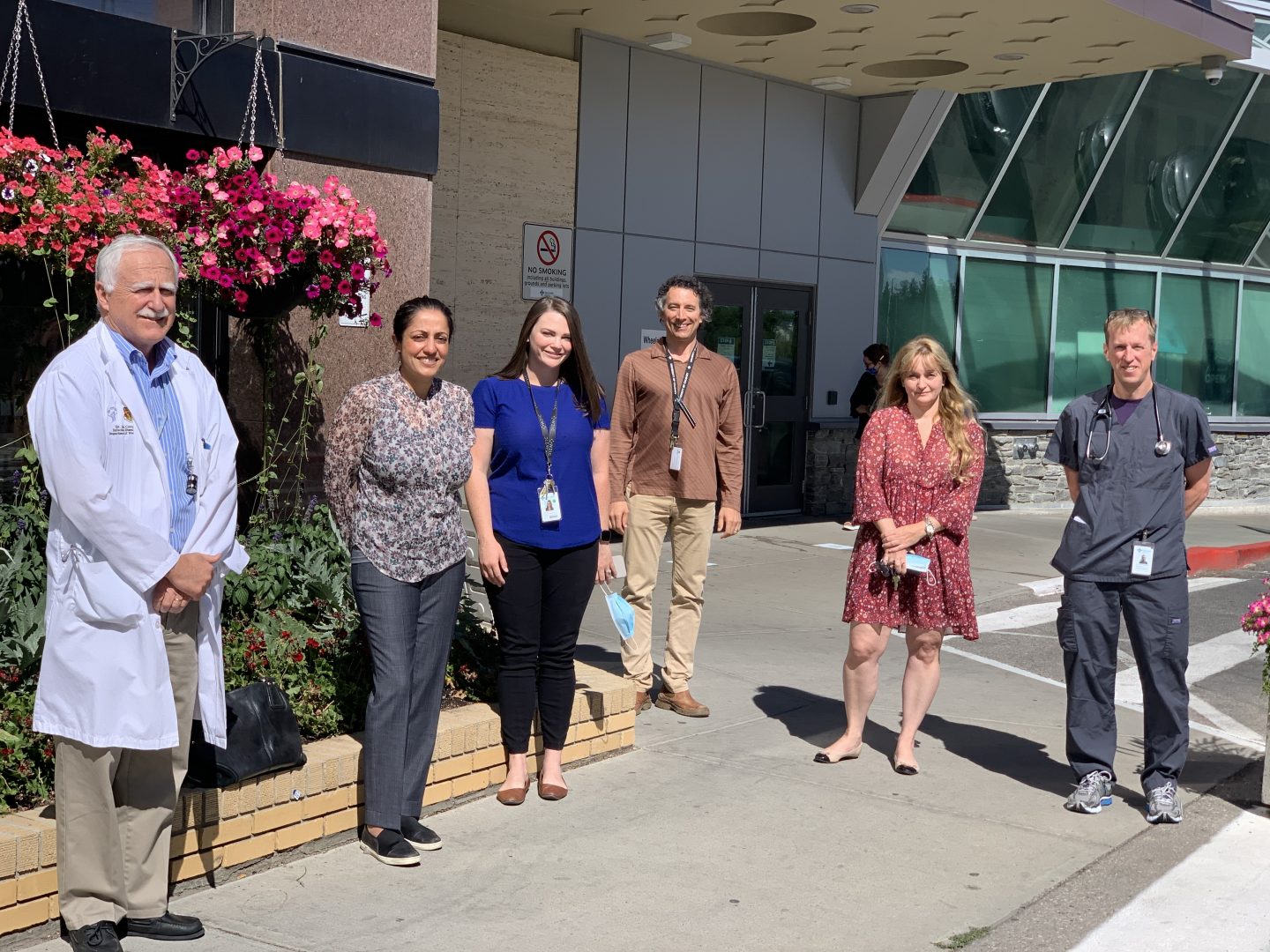Throughout the COVID-19 pandemic, important strides have been made in vaccines and testing in the hopes of returning to normalcy. But, thanks to you and your caring generosity, Calgary is participating in an international research study to develop more effective treatment protocols for people contracting COVID-19 and fighting for their lives.
When the pandemic began, very little was known about effective treatment options for individuals who were getting really sick. Many groups were trying to set up research, but the one that resonated with researchers in Calgary was the WHO Solidarity Trial with a Canadian arm called the CATCO trial. It was launching very rapidly with the idea to include 30 countries, which resulted in 500 hospitals participating in a massive trial that would generate information and results very quickly.
“A typical trial like this would take five years to get results if everything went well and we wanted results in months, not years. What the funds from Calgary Health Foundation donors really allowed us to do was get ready and get organized at all four Calgary hospitals, so that when the patients started arriving, we were ready to offer these treatments to them,” Study investigator Dr. Alain Tremblay tells us.
The first local patient was enrolled by the end of May 2020. To date, over 1,250 people have been screened for the study, with 225 enrolled in the CATCO study in Calgary. These are inpatients diagnosed with COVID-19 who receive therapies as part of the trials to gauge their effectiveness.
“We have to thank our patients, they’re all scared, this is a scary disease and they’re in a difficult time.”
The importance of studies like these is apparent and tangible.
A sister trial in the United Kingdom (UK) has a similar program design called Recovery. They tested the steroid dexamethasone and by July of 2020, we finally had our first treatment that reduced mortality for COVID-19. That has become standard of care around the world.
“We’re not looking for small improvements like one day less in hospital, we’re looking for treatments that change whether people survive the infection or not so that we know which treatments make a real difference,” Dr. Tremblay explains.
Just a few weeks ago, WHO closed the dataset for Remdesivir, an anti-viral, which will be the largest trial on this performed and hopes to provide a definitive answer on whether or not it’s working. Just the Canadian dataset for Remdesivir will be the second largest trial for this drug on its own. New promising treatments will be added to the study in the coming weeks.
The speed at which these trials were set up was unique to the COVID-19 pandemic, but will likely impact studies in the future.
“I think we’re learning through these mega trials and collaborative trials that are going to be applicable to other health conditions,” says Dr. Tremblay. “In fact, there’s a CIHR grant from this group in Canada that’s really looking at how to facilitate these networks for clinical trials across the country so that, either if there’s an emerging health problem or existing health problems, we could all collaborate rather than having all of these little small studies that are aren’t very conclusive. It’s hopefully going to change how we do these clinical trials for things unrelated to COVID.”



